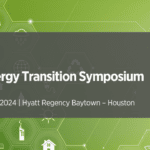OCED Selects Three Projects in CA, ND, and TX to Reduce Harmful Carbon Pollution, Create New Economic Opportunities, and Advance Carbon Reducing Technologies
WASHINGTON, D.C.— The U.S. Department of Energy (DOE) Office of Clean Energy Demonstrations (OCED) today announced up to $890 million in funding for three projects to demonstrate technologies designed to capture, transport, and store carbon emissions that would otherwise accelerate climate change and jeopardize public health. Funded by the President’s Bipartisan Infrastructure Law, the three projects—located in California, North Dakota, and Texas—have the potential to curb carbon dioxide (CO2) emissions from three power plants by preventing roughly 7.75 million metric tons of CO2 emissions from being released into the atmosphere each year—an amount equivalent to the annual CO2 emissions of 1.7 million gasoline-powered cars. Funding applicants were required to submit Community Benefits Plans, which will help ensure meaningful community and labor engagement in carbon management technologies while addressing environmental burdens in partnership with communities to ensure an equitable and just energy transition.
The Carbon Capture Demonstration Projects Program aims to advance integrated carbon capture, transport, and storage technologies and infrastructure that can be deployed at power plants and in hard-to-decarbonize heavy industries. DOE estimates that reaching President Biden’s ambitious plan for a net-zero emissions economy will require capturing and storing between 400 million and 1.8 billion metric tons of CO2 from emissions sources annually by 2050. Selected projects, once completed, will help reduce emissions from the power sector, which accounts for more than a quarter of U.S. carbon emissions.These projects are also breaking ground by demonstrating three novel solvents at commercial-scale and combining them with carbon transport and storage in different geological settings.
Projects selected for award negotiation include:
- Baytown Carbon Capture and Storage Project: Baytown, Texas – The Baytown Carbon Capture and Storage Project plans to capture CO2 from the Baytown Energy Center, a natural gas combined-cycle power plant. The CO2 will be transported using new and existing pipelines and sequestered in storage sites on the Gulf Coast. The project is evaluating the use of greywater cooling to minimize freshwater consumption by reusing wastewater. Calpine leads this project and has partnerships with Minority-Serving Institutions to support equitable job access and workforce development. Calpine plans to develop a Community Benefits Agreement and will include third party monitoring and validation of its Community Benefits Plan to support accountability and transparency.
- Project Tundra: Center, North Dakota – Project Tundra is a carbon capture system that will be developed adjacent to the Milton R. Young Station, a coal-fired power plant near Center, North Dakota. The captured CO2 will be safely and permanently stored in saline geologic formations beneath and surrounding the power plant. Project Tundra is led by the project sponsors of Dakota Carbon Center East Project LLC, which includes Minnkota Power Cooperative and TC Energy, and was formed to facilitate investment in and development of Project Tundra. Planning has already begun for the Community Benefits Agreements and other related agreements with impacted communities. Other related workplace and environmental concerns are being addressed, which support rural quality of life issues while also allowing for responsible project development. Project sponsors have engaged organized labor to discuss the prospect of negotiating a Project Labor Agreement and are committed to the continued engagement of stakeholders throughout the development process. Minnkota Power Cooperative, as a project sponsor and host-site, currently partners through existing Collective Bargaining Agreements with the International Brotherhood of Electrical Workers.
- Sutter Decarbonization Project: Yuba City, California – The Sutter Decarbonization Project will demonstrate and deploy a commercial-scale carbon capture system at the Sutter Energy Center, a 550-megawatt natural gas combined-cycle power plant. The project will then transport the CO2 and sequester it permanently and safely more than a half a mile underground in saline geologic formations. This project will be the first in the world to deploy an air-cooling system at a carbon capture facility, which will eliminate the use of cooling water and significantly minimize freshwater usage—a critical concern of the local community. Negotiation of a Project Labor Agreement is underway and the project plans to engage with local and statewide labor organizations and educational institutions to secure qualified and highly skilled craft labor. The project also plans to negotiate a robust Community Benefits Agreement.
On December 18, 2023, DOE will host a national briefing to share more information about the selected projects. In January 2024, DOE and the selected project teams will co-host virtual community briefings to engage with local stakeholders in each location. These build on the local engagement conducted by the selectees during their application development, which included incorporating approaches to minimize freshwater usage in response to community feedback. Learn more about the community briefings and register here.
Selection for award negotiations is not a commitment by DOE to issue an award or provide funding. Before funding is issued, DOE and the applicants will undergo a negotiation process, and DOE may cancel negotiations and rescind the selection for any reason during that time. If awarded, OCED will evaluate these projects through a phased approach to project management that includes“go/no-go”decision points between each project phase.
Delivering Economic and Public Health Benefits to Communities Across America
In addition to reducing harmful carbon emissions, carbon capture technologies have the potential to deliver public health benefits to communities across the country and help revitalize local economies as the nation pursues an equitable and just energy transition in partnership with these communities. Funding applicants were required to submit a Community Benefits Plan. These plans, which must be implemented if projects are ultimately awarded, will support community and workforce engagement; invest in the American workforce; advance energy and environmental justice; promote diversity, equity, inclusion, and accessibility; and deliver benefits to disadvantaged communities.
To ensure the successful implementation of Community Benefits Plans, DOE intends to strengthen community capacity across the U.S. through a DOE-led initiative supporting collaborative regional consortia across the U.S., bringing together public, private, academic, and philanthropic partners to enhance community collaboration and leverage DOE funding to maximize benefits delivered to communities.
DOE’s Efforts to Advance Innovative Climate Technologies
DOE has supported research on carbon capture and storage for more than two decades. Through prior funding opportunity announcements, DOE is supporting front-end engineering and design (FEED) for industrial sectors such as cement, chemicals, and hydrogen. Investments in FEED studies—a critical first step ahead of larger-scale demonstration—will help enable similar technological advancement and cost transparency, which will be required for demonstration and widescale deployment for these industries.
OCED manages the Carbon Capture Demonstration Projects Program and is charged with accelerating deployment of carbon management technologies by de-risking these transformational technologies at scale and catalyzing private sector investment through public-private cost share agreements. OCED plans to issue an additional funding opportunity for this program in the future.
Visit the OCED and FECM websites for more information on how DOE is working to expand the commercial impact of its research investments to accelerate the deployment of carbon management technologies and support an equitable transition to a decarbonized energy system.
Source Energy.Gov




